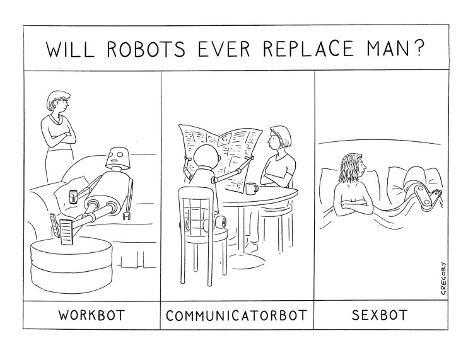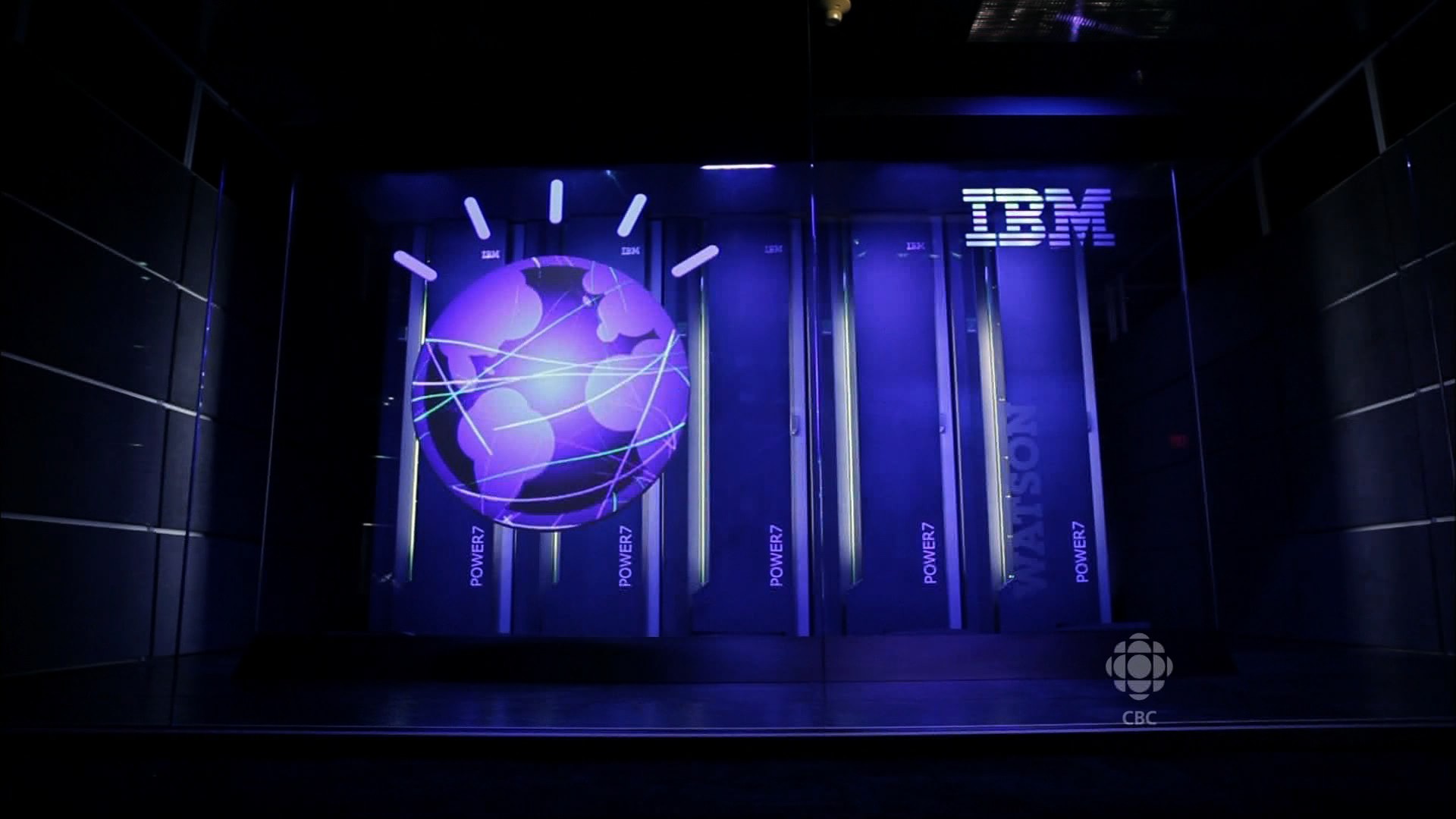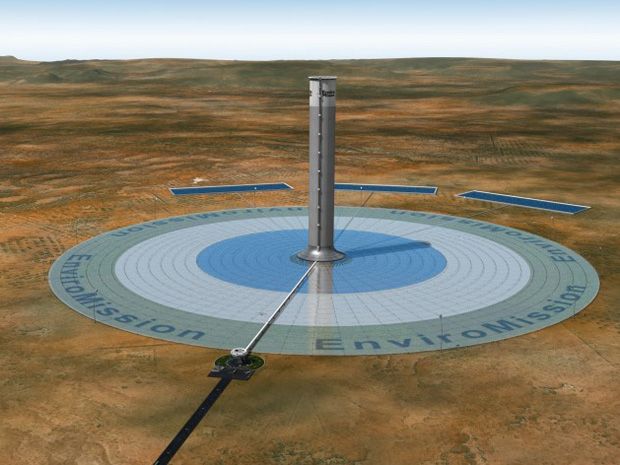
To fly around space avoiding the junk we'll need not only A.I. but different bodies.
One way is mind uploading.
Our self is put inside more comfortable living machines, capable of self-repair:
Mind uploading - Wiki"
Whole brain emulation or "
mind uploading" (sometimes called
"mind copying" or "
mind transfer") is the hypothetical process of copying or transferring a conscious mind from a brain to another storage medium by
scanning and
mapping a biological brain in detail and copying its information and computational state into a computer system or another computational device. The computer would have to run a
simulation model so faithful to the original that it would behave in essentially the same way as the original brain, or for all practical purposes, indistinguishably.
[1] The simulated mind is assumed to be part of a
virtual reality simulated world, supported by an anatomic 3D body simulation model. Alternatively, the simulated mind could be assumed to reside in a computer inside (or connected to) a
humanoid robot or a biological body, replacing its brain."
To upload our minds to robots we have either to know ourselves atomically (
Human Brain Project 19 videos: slow load
http://www.youtube.c...nProject/videos Strategic Objectives "1 - Design, develop and deploy the ICT platformsThe HBP will develop six ICT platforms, dedicated respectively to Neuroinformatics, Brain Simulation, High Performance Computing, Medical Informatics, Neuromorphic Computing and Neurorobotics. In all cases, the platforms will build on existing capabilities, some but not all developed by the HBP partners.
2 - Demonstrate the scientific value of the six ICT platformsDuring the ramp-up phase, the HBP will conduct a number of small pilot studies designed to test the capabilities of the platforms. The projects – which will span the three key areas of neuroscience, medicine, and computing – will test how the platforms can work together on specific scientific problems and allow developers to benefit from user feedback on the functionality provided. The pilot studies will cover only a tiny proportion of the full range of scientific questions the platforms will ultimately address. Nonetheless each study will attempt to make significant advances beyond the state of the art.
3 - Research for future versions of the platformsDuring the ramp-up phase, the HBP will collect data, develop theoretical frameworks and perform technical development work necessary for the future development of the platforms during the operational phase.
4 - Ethical research and responsible innovationThe HBP Foresight Lab will study the views, attitudes and strategies of key stakeholders with methods from the empirical social sciences involving interviews, focus groups and other assessment methods, while simultaneously using systematic foresight techniques such as modelling, horizon scanning and scenario planning, a strategy which has reached its
highest stage of development in the UK (www.bis.gov.uk/foresight) . Studies of the philosophical and conceptual implications of HBP will contribute to on going debates about a broad range of issues ranging from the neural bases of human selfhood and higher mental functions to the concepts of personhood, free will, and consciousness. Attempts to achieve public dialogue and engagement during the development of new technologies have used a range of methods and approaches including consensus conferences, citizen juries, stakeholder workshops, deliberative polling, focus groups and various forms of public dialogue. It is important that the HBP Ethics and Society Programme respects scientists' legitimate desire to inform the public about their research, while avoiding self-conscious attempts to steer public opinion in a particular direction.
5 - Transdisciplinary educationDespite frequent calls to broaden the scope of academic education programs, a lot of undergraduate education and most post-graduate education is highly specialised. As a consequence, it is highly unusual that a life sciences student receives more than a superficial introduction to medicine or computing; similarly medical students learn little about computing and have only a limited training in biology; computer scientists have virtually no training in any discipline outside their own. Very few young scientists receive any training at all on issues related to innovation, i.e. IPR management, legal and organisational solutions for exploiting research results, how to write a business plan, etc. In a situation in which ICT and the life sciences are converging, the specialist nature of current curricula makes it difficult for the HBP and for society to recruit personnel with the transdisciplinary skills they need.
An important goal for the HBP is therefore to design and implement a broad programme of transdisciplinary education that helps to train the young scientists the project requires, while simultaneously meeting broader societal needs. A key role in the programme will be played by MOOCs (Massive Open On-line Courses), involving video documentation of lectures as well as formal on-line examinations with certificates awarded by the affiliated universities. HBP will establish a multi-university certification process. While MOOCs will be targeted toward the estimated 5,000 students over the ten years of the project, MOOCs are additionally open to any student world-wide. MOOCs will also serve as a selection process for new students to be recruited into the HBP.
6 - Develop a framework for collaborationThe European Commission's goal is to turn the FET Flagship Programme into a new model of research funding that optimises collaboration among different sources of funding, reduces administrative overhead and provides effective support for long-term visionary projects such as the HBP. The project's planned European Research Programme's activities will support this goal.
plus others)"
OR build god enough A.I.'s.
BOTH are due in 2022.
Computational Complexity increasing:
 Association for the Advancement of Artificial Intelligence
Association for the Advancement of Artificial Intelligence
Major AAAI activities include organizing and sponsoring
conferences,
symposia, and
workshops, publishing a quarterly
magazine for all members, publishing
books,
proceedings, and
reports, and awarding grants, scholarships, and other
honors.
Announcing the NEW AAAI Member Site!
 AAAI Members: Read the Latest Issue of AI Magazine! Upcoming AAAI Events March 2014
AAAI Members: Read the Latest Issue of AI Magazine! Upcoming AAAI Events March 2014The
AAAI Spring Symposium begins on March 24 in Palo Alto, CA.
May 2014The
The Eighth International AAAI Conference on Weblogs and Social Media will be held in Ann Arbor, Michigan, USA, May 31 – June 3..
July 2014The
Twenty-Eighth AAAI Conference will be held in Québec City, Québec, Canada July 27–31.
July 2014The
Twenty-Sixth AAAI Conference on Innovative Applications of Artificial Intelligence will be held in Québec City, Québec, Canada July 29–310.
Resources & Links• AAAI Is on Facebook!• AAAI Affiliates• AAAI Chapter Program• AAAI Press• AAAI Press Room• AAAI Fellows• AI Magazine• Author Pages• Awards• Calendar• Digital Library• International AI Site• Job Bank• Meetings• Resources• Sponsored Journals• WorkshopsAAAI |
Search |
Contact AAAIAAAI Conferences |
AI Magazine |
AITopics |
Awards |
Calendar |
Digital Library |
Jobs |
Meetings |
Membership |
Press |
Press Room |
Publications |
Resources |
Symposia |
Workshops
Edited by Innocent, 10 December 2013 - 03:21 AM.






























 This topic is locked
This topic is locked






















































